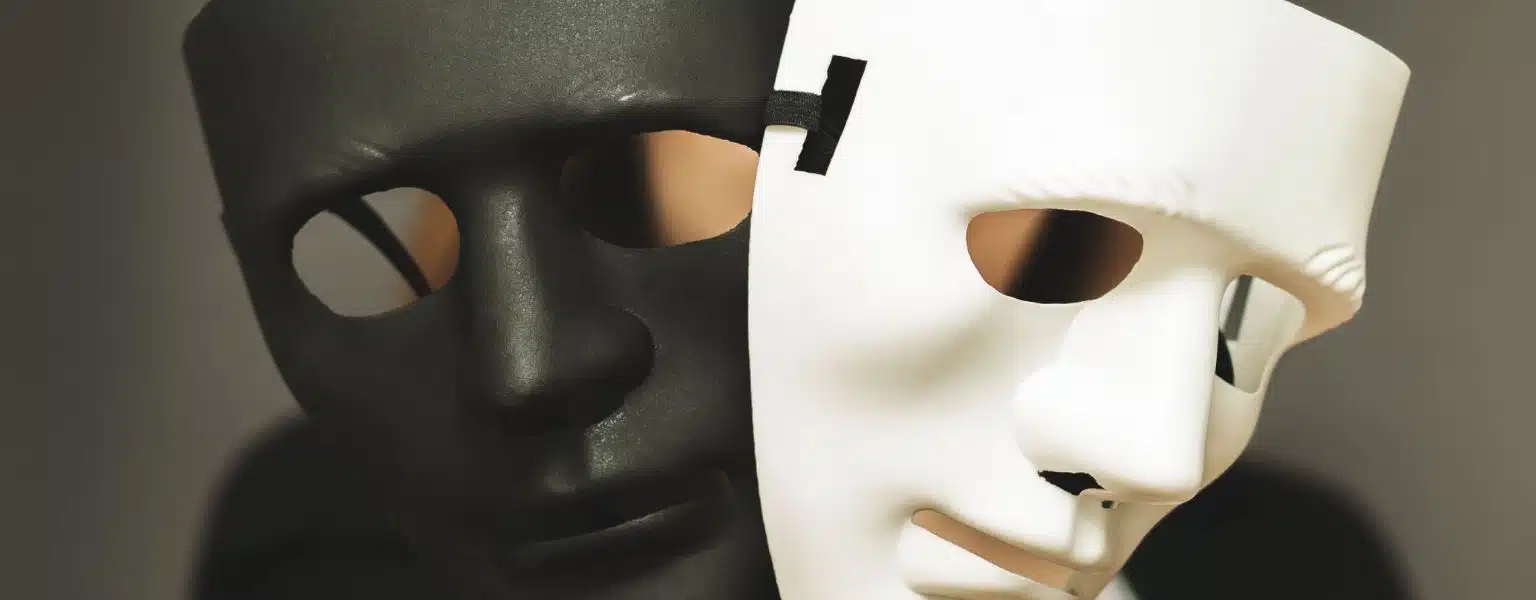Table of Contents
What Is Borderline
Personality Disorder (BPD) and How Is It Treated?
Borderline Personality Disorder (BPD) is a mental health disorder linked to early traumatic experiences. According to the National Center for Biotechnology Information (NCIB), “surveys have estimated the prevalence of borderline personality disorder to be 1.6% in the general population and 20% of the psychiatric inpatient population.” BPD is characterized by extreme mood swings, rapid changes of interests and values, and substantial uncertainty about a person’s place in the world. Individuals with BPD often engage in risky and dangerous behavior, including drug and alcohol abuse, promiscuity, and self-injurious behaviors, like cutting and suicide attempts.
Iris Wellness Group helps those who are struggling with a dual diagnosis of substance addiction or impulse control disorders and BPD. If you or a loved one needs intensive residential treatment, outpatient therapy, or partial hospitalization, we have a program that can suit your needs.
Types of Borderline Personality Disorder (BPD)
Borderline Personality Disorder, while a single diagnosis, can present itself in different forms, with individuals exhibiting varying symptom patterns. Mental health experts have recognized four primary subtypes of BPD, each with its distinct characteristics:
Discouraged BPD: This subtype is often characterized by deep feelings of worthlessness, a strong dependency on others, and an overwhelming fear of rejection.
Impulsive BPD: Individuals with this subtype typically show marked impulsiveness, emotional volatility, and a propensity for engaging in risky and potentially harmful behaviors.
Petulant BPD: This form involves frequent, unpredictable mood shifts, a tendency towards irritability and defiance, coupled with a profound fear of being abandoned.
Self-Destructive BPD: This subtype is characterized by a tendency towards self-harm, engaging in self-sabotaging actions, and a persistent sense of emptiness.
At Iris Wellness Group, our compassionate mental health professionals specialize in addressing these varied expressions of BPD. We are committed to providing personalized BPD Treatment in Chattanooga, ensuring that each individual receives the specific support and treatment they require.
Signs of Borderline Personality Disorder
Signs indicative of borderline personality disorder encompass:
- “Black-and-white,” “all-or-nothing” thinking styles where everything is either “all good” or “all bad,” with little in between.
- Sudden and intense shifts of perceptions and moods.
- Intense fear of real or imagined abandonment in personal relationships.
- Unpredictable and intense relationships.
- Disturbance of identity due to an unstable self-image.
- Dangerous, impulsive, and risky behaviors, like: Binge-eating Substance and alcohol abuse.
- Unsafe sexual practices, Reckless driving, Cutting or other Self-Injurious Behaviors (SIBs), Spending sprees.
- Suicidal ideation and threats of suicide.
- A fluctuating self-image or self-worth.
- Chronic feelings of emptiness.
- Inappropriate, intense, or uncontrollable anger.
- Difficulty building trust and maintaining meaningful relationships.
- Unstable relationships due to extremes of perception between: Devaluation- reduction of another’s value and Idealization- exaggeration of another’s positive attributes.
It’s essential to note that not everyone diagnosed with BPD will manifest all these signs, but many might exhibit several over their lifetime. Generally, these signs become noticeable in one’s teens or early adult years, though they can manifest in later childhood as well. If you or a loved one are struggling with Bipolar Disorder, Call Iris Wellness Group to begin your Bipolar Disorder Treatment in Chattanooga, TN.
Co-Occurring Disorders
Associated Mental Conditions BPD’s complexity in diagnosis arises partly because it frequently coexists with other mental health conditions like depression, anxiety, or addiction. During a psychiatric evaluation, it’s crucial to communicate all the symptoms and concerns you experience.
What are the Risk Factors for Borderline Personality Disorder?
Research indicates that a combination of genetic, environmental, and societal influences can heighten the risk of developing borderline personality disorder. Some of these contributory factors are:
- Genetic predisposition: Individuals with a close family member, like a parent or sibling, diagnosed with the disorder may have a heightened risk, likely due to shared genetic components.
- Brain anomalies: Studies have found that individuals with borderline personality disorder might exhibit alterations in brain structure and functionality, particularly in regions governing impulse control and emotional regulation. However, it’s ambiguous whether these anomalies are a result of the disorder or if they contribute to its onset.
- External and societal influences: A significant number of those diagnosed with borderline personality disorder recount traumatic events from their past, such as neglect, mistreatment, or adversity during their formative years. Some might have navigated volatile relationships or faced significant interpersonal conflicts.
What is the Difference Between Borderline Personality Disorder and Bipolar Disorder?
Bipolar disorder and borderline personality disorder (BPD) are both characterized by notable shifts in mood and behavior, but they’re inherently different conditions.
In BPD, mood and behavioral shifts tend to occur rapidly, especially during stressful situations or interpersonal interactions. In contrast, bipolar disorder presents more prolonged mood phases that are less influenced by immediate external factors. Moreover, individuals with bipolar disorder often experience marked variations in energy and activity levels, a feature not typically seen in those with BPD. Call us today to begin your BPD Treatment in Chattanooga, TN today.
Comprehensive Borderline Personality Disorder Treatment
How is Borderline Personality Disorder Treated?
Historically, treating BPD was complex and often met with limited success. However, recent evidence-based therapies have shown that individuals with borderline personality disorder can achieve symptom reduction, enhanced functionality, and a heightened quality of life.
Nevertheless, effective therapy demands dedication, patience, and persistence. The treatment regimen can encompass psychotherapy (or talk therapy), medication, or a blend of both.
In situations where an individual is extremely distressed or poses a threat to themselves or others, a brief hospitalization may be suggested. During this period, healthcare professionals collaborate with the patient to craft a comprehensive treatment strategy.
It’s noteworthy that many individuals diagnosed with borderline personality disorder also grapple with other mental health disorders, such as:
- Mood disorders (in 80% to 96% of BPD patients).
- Anxiety disorders (88%).
- Substance abuse disorders (64%).
- Eating disorders (53%).
- Attention-deficit/hyperactivity disorder (ADHD) (spanning 10% to 30%).
- Bipolar disorder (15%).
- Somatoform disorders (10%).
For those with coexisting conditions, concurrent treatments become essential.
BPD Psychotherapy Interventions
Psychotherapy remains the preferred method for borderline personality disorder treatment. Its objective is to help individuals delve into the driving forces behind their thought processes and behaviors, enabling them to forge more constructive interpersonal relationships.
Borderline Personality Disorder Treatment with a co-occurring addiction can include multiple strategies to address all aspects of the disorder and addiction, such as:
- Dialectical Behavior Therapy (DBT): Tailored specifically for BPD patients, DBT is instrumental in teaching acceptance of personal realities and behaviors. It imparts skills vital for managing intense emotions, curtailing harmful behaviors, and fostering better relationships.
- Cognitive Behavioral Therapy (CBT): A goal-driven approach, CBT allows individuals to scrutinize their thoughts and emotions closely, shedding light on how thought patterns influence behaviors. The therapy aids in replacing detrimental thought processes and habits with healthier alternatives.
- Group Therapy: Conducted in a group setting, this therapy promotes positive interactions and effective self-expression among members, all under professional guidance.
We additionally provide the following therapeutic approaches:
- One-on-one counseling
- Support groups
- Family therapy
- Holistic treatment
- Medication to treat co-occurring mood swings, depression, and anxiety
BPD Medication Recommendations
The efficacy of medications for BPD remains inconclusive, making them generally not the primary treatment option. However, in specific scenarios, psychiatrists might suggest medications to address particular symptoms or overlapping mental health challenges. These drugs can alleviate anxiety, depression, modulate mood fluctuations, or curtail impulsivity. Some BPD patients also benefit from antipsychotic medications.
If you or your loved one are struggling with BPD in Chattanooga, call Iris Wellness Group today to being your borderline personality treatment in Chattanooga.
Can Borderline Personality Disorder Be Prevented?
Regrettably, borderline personality disorder cannot be prevented.
BPD often has a genetic component, making individuals with a family history of the disorder more susceptible. It’s essential to consult with your healthcare professional to understand the early signs of BPD, allowing for timely intervention and treatment.
Borderline Personality Disorder Treatment in Chattanooga, TN
At Iris Wellness Group, our staff can help you find the best approach for your personalized treatment plan. Our comprehensive Borderline Personality Disorder Treatment program is precipitated on the philosophy of “meeting people exactly where they are.” Our team is comprised of caring, knowledgeable, and sympathetic professionals who are passionate about helping those struggling with BPD and addiction. Call us today or verify your insurance to get the help you deserve and begin your BPD treatment in Chattanooga, TN.
Borderline Personality Disorder Frequently Asked Questions
What Is BPD?
Borderline Personality Disorder (BPD) is a mental health disorder characterized by a pattern of ongoing instability in moods, behavior, self-image, and functioning. Individuals with BPD may experience intense episodes of anger, depression, and anxiety that can last from a few hours to days. They may also have issues with self-identity, impulsivity, and fear of abandonment, which can lead to unstable relationships.
Do I Have BPD?
If you suspect you have BPD, it’s important to seek a professional diagnosis. Common signs include emotional instability, intense interpersonal relationships, fear of abandonment, impulsive behavior, and a chronic feeling of emptiness. A mental health professional can provide an accurate diagnosis based on a thorough assessment.
What Causes BPD?
The exact cause of BPD is not known, but it’s believed to be a combination of genetic, biological, and environmental factors. Childhood trauma, such as abuse or neglect, and family history of mental health disorders can increase the risk of developing BPD.
Is Borderline Personality Disorder Genetic?
There is a genetic component to BPD, as it appears to run in families. However, genetics alone doesn’t determine its development; environmental factors also play a significant role.
Is BPD Curable?
While BPD is not curable, it is treatable. Many people with BPD experience significant improvement through treatment, which can include therapy, medication, and lifestyle changes. With proper treatment and support, individuals can learn to manage their symptoms effectively.
Can BPD Get Better Without Treatment?
BPD typically requires treatment to improve. Without professional help, the symptoms can persist and potentially worsen over time. Treatment provides essential skills and strategies for managing the disorder.
What Is the Most Effective Treatment for Borderline Personality Disorder?
The most effective treatment for BPD often includes a combination of psychotherapy, such as Dialectical Behavior Therapy (DBT), and medication management. DBT, in particular, has been shown to be very effective in reducing BPD symptoms and improving quality of life.
What Is the Treatment for Borderline Personality Disorder?
Treatment for BPD typically involves psychotherapy as the mainstay treatment, with DBT being a highly effective form. Medications may be used to treat specific symptoms like mood swings or depression. Treatment plans should be individualized and may include group therapy and family therapy.
How to Treat Borderline Personality Disorder?
Treating BPD effectively involves a comprehensive approach that includes psychotherapy, such as DBT or Cognitive Behavioral Therapy (CBT), and possibly medication. Consistent therapy helps individuals understand and manage their emotions, reduce self-destructive behaviors, and improve relationships.
What Is the Best Treatment for Borderline Personality Disorder?
The best treatment for BPD is often considered to be DBT, which focuses on teaching skills in mindfulness, emotion regulation, distress tolerance, and interpersonal effectiveness. This approach helps individuals with BPD gain better control over their emotions and behaviors.
What Is BPD Outpatient?
BPD outpatient treatment involves regular therapy sessions, typically on a weekly basis, while the individual continues to live at home. This can include individual therapy, group therapy, and skills training sessions, providing flexibility and the ability to apply learned skills in real-life settings.
Is Borderline Personality Disorder the Same as Bipolar?
Borderline Personality Disorder and Bipolar Disorder are distinct conditions, though they can share some symptoms like mood swings. BPD is a personality disorder characterized by emotional instability and interpersonal issues, while Bipolar Disorder is a mood disorder marked by alternating periods of depression and mania.
Who is Chattanooga Borderline Personality Disorder Treatment Designed For?
Chattanooga borderline personality disorder treatment caters to individuals living in Chattanooga, Red Bank, Signal Mountain, Lookout Mountain, Southeastern Tennessee, Northern Georgia, or surrounding areas. These services are ideal for those who do not require medically supervised detoxification, have a stable and supportive home and work environment, and are self-motivated in their journey towards recovery.











